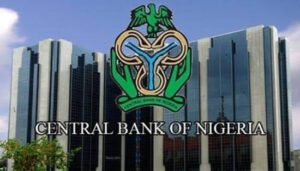
CIBN collaborates with FinTech NGR, FSI to promote professionalism
The Chartered Institute of Bankers of Nigeria (CIBN) has signed an agreement with the FinTech Association of Nigeria (Fintech NGR) and FinTech Development and Advocacy Initiative (FSI), to promote professionalism in the financial services industry.
The signing of the agreement was witnessed by representatives and members of CIBN, FinTech NGR and FSI, at the Bankers House, Victoria Island, on Thursday in Lagos.
President/Chairman of CIBN, Dr Ken Opara, said the alliance was a unique one in the annals of the Institute.
“First, this is the first time the institute is collaborating with two partners at once for the provision of a certification.
“Secondly, this is the first collaboration agreement to be executed during my tenure.
“Thirdly, this initiative is a further step towards the realisation of the mandate of the institute to promote professionalism, whilst enhancing knowledge and competencies in the financial services ecosystem,” he said.
The Fintech Certification Programme is intended to sharpen the minds and raise awareness of industry players about the importance of leveraging technology for financial inclusion and growth.
Opara said the role of the Institute was to be the bridge that would engender positive handshake among all the players (banks, fintechs, other financial agents) in the financial services industry.
This, he said, would be done through capacity building programmes, training, content development, advocacy and sound corporate governance policies.
The CIBN President also said his administration would be built on six strategic pillars with the acronym FUTURE.
According to him, the first pillar with the alphabet ‘F’ is Financial Innovation and Transformation.
He said, “Under this pillar, we plan to among others, institutionalise Fintech Certification in collaboration with other credible bodies to sharpen the minds and awareness of industry players in optimising technology for financial inclusion and growth.
“I am extremely delighted that three months after mounting the saddle of leadership of the Institute, we are taking sure steps towards the achievement of this objective.
“Under this Agreement, the three institutions have come together to award Fintech Certification, which offers an excellent opportunity to bridge the tech talent gap and indeed further drive the implementation of the Competency Framework in the banking and finance industry in Nigeria.”
Opara appreciated the Bankers Committee and the Central Bank of Nigeria for appointing the institute as the Accreditation Agency for the implementation of the Competency Framework.
He said the institute would not take the appointment for granted, expressing its determination to make a success of the assignment, which would lead not only to more knowledgeable professionals but improved service delivery.
Mr Ade Bajomo, President, FinTech NGR, said the partnership was a historic moment for FinTech NGR.
“If you cast your mind back only a few years ago, people were wondering whether FinTechs will take over banks and whether banks will still exist.
“But I think we are getting down to a point where you can see that both FinTechs and banks will coexist, they will co-compete and of course, there will be banks that will be more successful because they’re agile, and there will be FinTechs as well that will be successful because of tapping opportunities that perhaps the banks cannot see.
“But in all of these really, it is essential to develop capacity and capability,” he said.
Bajomo said banking as a profession was well regulated with strong compliance, strong culture of capacity building, knowledge building among others, adding that there was the need to also build capacity within the FinTechs in Nigeria.
“If you look at banking as a profession, it’s well regulated, there’s strong compliance, but there is also a strong culture of capacity building, knowledge building.
“When you look at FinTechs and, indeed, the nature and age of FinTechs in our country, it’s about agility, it’s about innovation; and those things that are lacking in terms of compliance regulations have to form the foundation.
“If we’re going to provide scalable, trustworthy financial services, then we have to build that capacity within the fintech.
“But we also have to build the capacity within banks to be more agile, so that way, it’s a rising tide and our economy will benefit from it, the rest of Africa and the rest of the world will benefit from it,” Bajomo said.
Executive Director FSI,Mrs Aituan Kola-Oladejo, who described CIBN as a ‘forward thinking institution,’ said the signing of the agreement would sharpen the FinTech industry.
She said, “This agreement will open the gate for more FinTech innovators into the FinTech ecosystem, as what was lacking was trust.”



